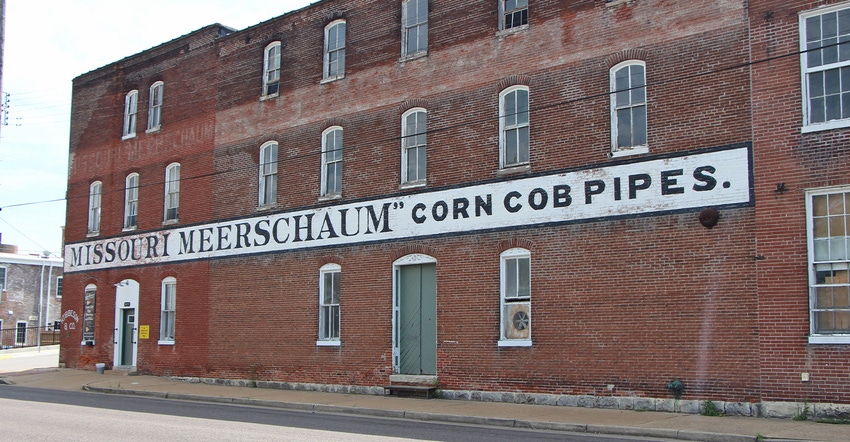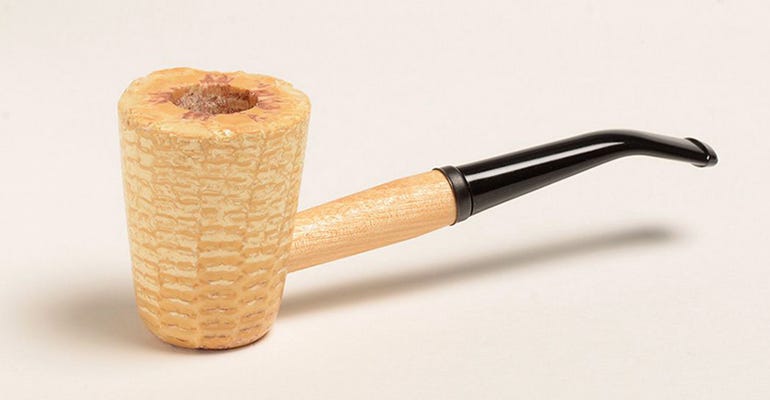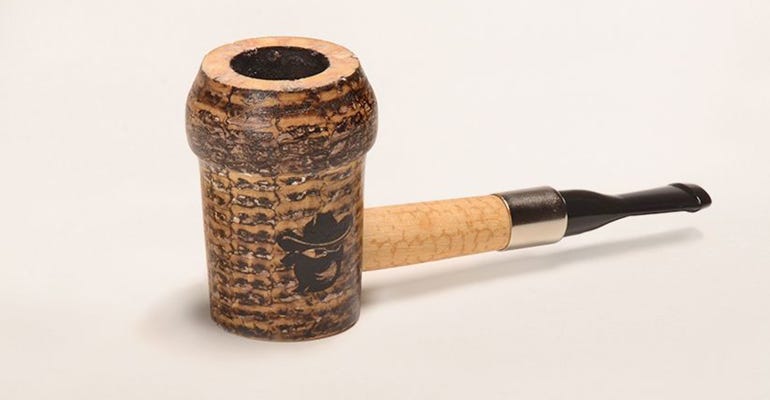
During springtime along the Missouri River in southern Warren County, I ran across a farmer sowing a different kind of corn seed specially designed to produce hearty cobs.
Honestly, I did not realize there was that large of a market for corn cobs. Then the farmer directed me to nearby downtown Washington, Mo., and the building marked Missouri Meerschaum Corn Cob Pipes.
I’d taken my daughter’s senior pictures right across the street at the former train station. Knowing the city’s devotion to historical preservation, I thought the city just kept the name on the building, but that was not the case.
Missouri Meerschaum is the oldest, largest working corn cob plant, earning the town the distinction of “Corn Cob Capitol of the World.”

STATE TRADITION: The Mark Twain Corn Cob Pipe is part of the Hannibal Collection, which also includes the Huck Finn and Tom Sawyer. According to the company, “it holds enough tobacco for a smoke long enough to take the cares of the day away.”

Dutch immigrant Henry Tibbe started producing corn cob pipes in 1869. A woodworker by trade, Tibbe dabbled in corn cob pipes to satisfy a farmer customer. But the pipe business started picking up.
By early 1925, there were such demand that in Franklin County alone there were close to a dozen companies that turned corn cobs into pipes.
Today, only Missouri Meerschaum survives. The company uses Missouri-grown corn on its own 150 acres and supplements with additional acres contracted through local farmers, such as the one I met.
Peek inside the factory
The video below shows the process of storing and creating pipes.
The cobs are stored on the third floor of the brick factory that dates to the 1880s. They remain there for at least two years to age, which makes the cobs harder and drier.
There is more to the pipe than the corn cob. What sets Missouri Meerschaum pipes apart is the addition of a Turkish clay that is applied to the outside of the pipe, making it one that will last from generation to generation.
The success of the business is evident as 5,000 pipes are shipped daily to customers in the U.S. and 70 countries, including Europe, Asia, South America and Australia.
You can’t miss the Missouri Meerschaum Corn Cob Pipes building. Just head to the Missouri River and look south. Then step into their museum to see some of the history that made this Missouri company withstand the test of time.

OUTLAW PIPE: Missouri Meerschaum collaborated with Crow Valley Pipe Co. on its Jesse James Corn Cob Pipe, part of the Outlaw Series of corn cob pipes. The train robber is noted in the design, which appears as a steam engine’s smokestack and features a wide nickel band.

About the Author(s)
You May Also Like






